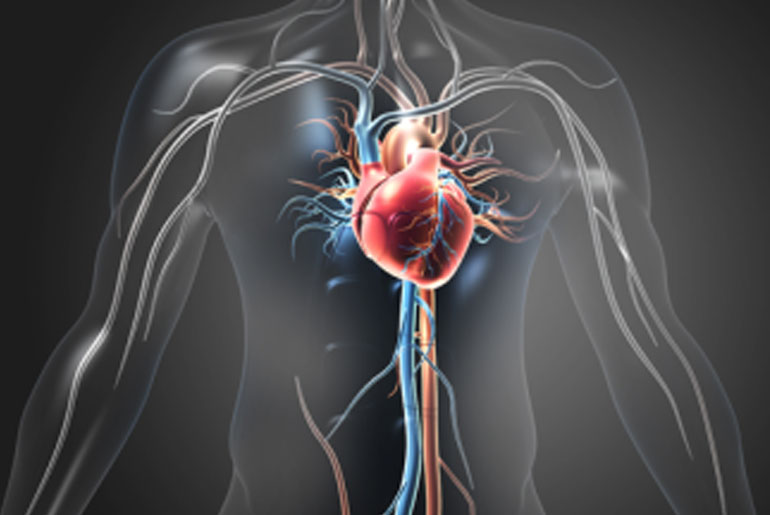Anemia can impact the heart due to its role in the pumping and distribution of blood. Anemia, characterized by a deficiency in red blood cells or hemoglobin, can affect the heart in several ways. Firstly, it can lead to an increased heart rate (tachycardia) as the heart works harder to compensate for the reduced oxygen-carrying capacity of the blood. Secondly, anemia can cause palpitations, shortness of breath, and fatigue due to inadequate oxygen delivery to tissues. Additionally, severe anemia may result in heart failure or exacerbate existing heart conditions, posing significant risks to cardiovascular health. Understanding the relationship between anemia and heart health is essential for effective management and prevention of complications.
Decreased oxygen delivery:
Anemia can indeed result in decreased oxygen delivery to the heart, primarily due to low hemoglobin levels. Hemoglobin is crucial for transporting oxygen from the lungs to tissues and organs, including the heart. When hemoglobin levels are insufficient, less oxygen is supplied to the heart muscle, leading to a condition known as myocardial ischemia. In myocardial ischemia, the heart muscle doesn’t receive an adequate oxygen supply to function optimally, which can result in symptoms such as chest pain (angina) and, if severe and prolonged, can lead to heart damage or even a heart attack. It underscores the importance of addressing anemia promptly to maintain proper oxygenation of the heart and prevent potential complications.
Increased heart rate:
Anemia can trigger an increased heart rate (tachycardia) as a compensatory mechanism in response to decreased oxygen delivery to tissues, including the heart muscle. The heart attempts to pump more blood to supply oxygen to various organs, including itself, in order to meet the body’s demands. However, this heightened workload on the heart can lead to strain over time, potentially contributing to various cardiovascular complications. Symptoms such as palpitations, chest pain (angina), and in severe cases, heart failure, may arise as a result of this increased heart rate and strain on the heart muscle. Managing anemia effectively is crucial to alleviate the burden on the heart and prevent further complications.
Abnormal heart rhythms:
Anemia can predispose individuals to abnormal heart rhythms, known as arrhythmias. The imbalance in electrolytes resulting from anemia, combined with the increased workload on the heart, can disrupt the normal electrical activity of the heart. This disruption can manifest as various types of arrhythmias, including atrial fibrillation or ventricular arrhythmias. Atrial fibrillation involves rapid, irregular beating of the heart’s upper chambers (atria), while ventricular arrhythmias affect the heart’s lower chambers (ventricles). These arrhythmias can pose serious health risks and may lead to complications such as stroke, heart failure, or sudden cardiac arrest. Managing anemia effectively is crucial in reducing the risk of developing arrhythmias and their associated complications.
Cardiac output:
Anemia can impact cardiac output, which refers to the volume of blood ejected by the heart per minute. Initially, the heart may attempt to compensate for the decreased oxygen-carrying capacity of the blood by increasing cardiac output. This compensatory mechanism aims to maintain adequate oxygen delivery to tissues and organs, including the heart itself. However, if anemia persists or becomes severe, the heart may become less efficient over time. As a result, cardiac output may decrease, leading to symptoms such as fatigue, weakness, and shortness of breath. Managing anemia effectively is crucial in maintaining optimal cardiac function and preventing complications associated with decreased cardiac output.
Absolutely, chronic untreated anemia can indeed lead to the enlargement of the heart muscle (cardiomegaly) as the heart compensates for the reduced oxygen-carrying capacity of the blood by working harder. This enlargement can weaken the heart muscle and increase the risk of heart failure over time. Furthermore, anemia can exacerbate symptoms and worsen outcomes in individuals with pre-existing heart conditions such as coronary artery disease, heart failure, or valvular heart disease. The decreased oxygen delivery to the heart can exacerbate ischemia, increase the workload on the heart, and worsen symptoms associated with these conditions. Early identification and effective management of anemia are essential to prevent adverse effects on cardiac function and overall health, especially in individuals with underlying heart conditions.
Disclaimer:
The information contained in this article is for educational and informational purposes only and is not intended as a health advice. We would ask you to consult a qualified professional or medical expert to gain additional knowledge before you choose to consume any product or perform any exercise.







